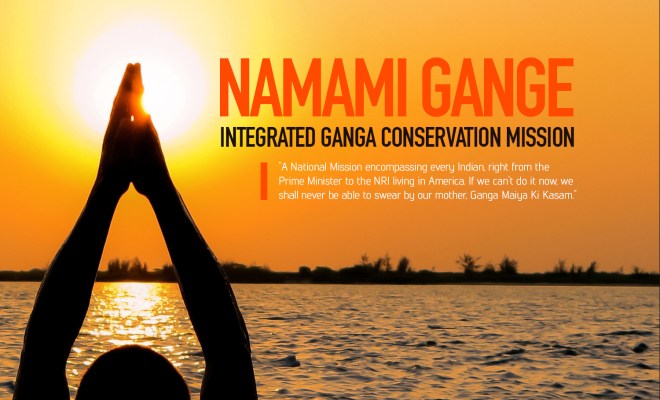Team L&M
The National Mission for Clean Ganga under the Ministry of Water Resources, River Development and Ganga Rejuvenation has roped in Rotary India to carry forward its Namami Gange project.
A memorandum of understanding (MoU) to this effect was signed by Director General, National Mission for Clean Ganga U P Singh and Vice-Chairman of Rotary India PT Prabhakar.
Rotary India will support clean Ganga mission through their ‘WASH in Schools’ program which they are undertaking in over 20,000 government schools and communities located along the river Ganga in the states of Bihar, Jharkhand and Nadia District of West Bengal and other states where Rotary has a strong presence.
WASH program includes the implementation of Water, Sanitation and Hygiene services in the targeted government schools and sensitising all the stakeholders, including school children, teachers, school management communities and communities on practicing positive health behaviour for improving awareness on sanitation. The children hence sesntised act as agents of change for their families and community they live in.
The objective of the National Mission for Clean Ganga is to reduce pollution and ensure rejuvenation of the Ganga river. This can be achieved by promoting intersectoral co-ordination for comprehensive planning & management and maintaining minimum ecological flow in the river, with the aim of ensuring water quality and environmentally sustainable development. The operational area of this project comprises the Ganges Basin and all states through which the river flows, including Delhi.
Ganga is among the largest rivers in Asia, flowing >2,500 kms from Goumukh in Uttarakhand to the Bay of Bengal at Ganga Sagar in West Bengal, covering 26% of India’s landmass. In 2010, reportedly, about 1.4 billion litres of untreated sewage was dumped into Ganga. Following this, in 2011, the Indian government took efforts to restore Ganga by focusing on engineering-based approaches to maintain its water quality; however, its limited efforts to involve local communities in the restoration process resulted in an unsuccessful attempt to revive the river. In addition, the government established the National Ganga River Basin Authority to address the issue of Ganga river at the basin level to maintain its water quality, ecological flows, biodiversity value and sustained ecosystem services.
